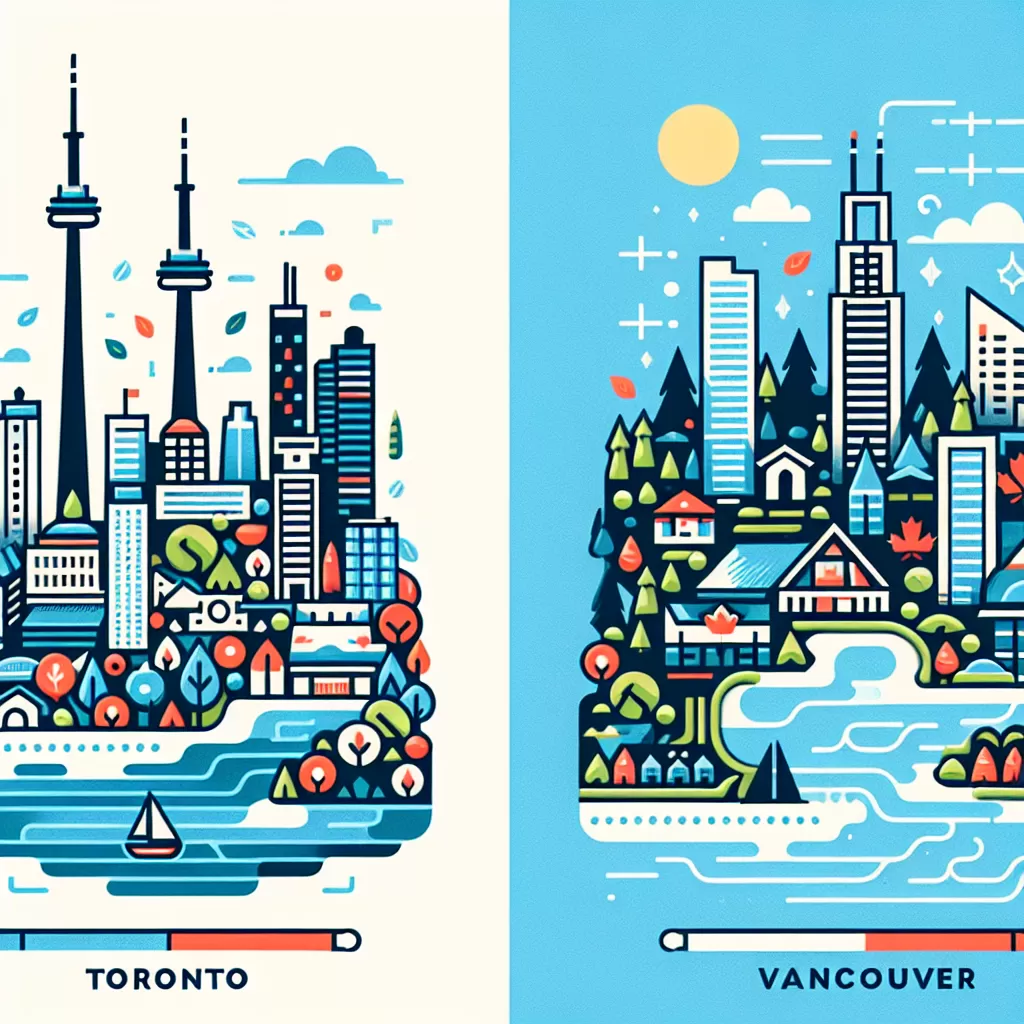Which Is Bigger Toronto Or Vancouver
Follow Currency Mart April 4, 2024
Where to purchase Foreign Currencies?

Introduction
Toronto and Vancouver: two vibrant and thriving cities in the vast landscape of Canada. Both are recognized globally, each offering wonderful opportunities and attractions. But which city is truly bigger when comparing population, economy, and size? Let's explore this in detail.Overview: Toronto vs. Vancouver
Toronto, the capital of Ontario, is the most populous city in Canada and the fourth most populous city in North America, boasting a population of over 2.7 million people in the city proper and nearly 6 million in the metropolitan region. This cosmopolitan city is a compelling mosaic of cultures, offering a robust and diverse economic infrastructure. Conversely, Vancouver, the coastal seaport city in British Columbia, is the eighth largest Canadian municipality, with a population of over 631,000 in the city and over 2.46 million in the metropolitan region. Vancouver's mesmerizing natural beauty adds allure to its dynamic cultural milieu, contributing to the city's appeal around the world.Population: Toronto's Edge
In terms of population, Toronto is considerably larger. With a city population more than four times that of Vancouver and a metropolitan population almost twice as large, Toronto holds a decisive lead. The diversity of Toronto's population also adds to its largeness. With more than half of its population born outside Canada, Toronto is the world's most diverse city, bringing together cultures from across the globe.Size: Toronto's Expansiveness
Comparing physical sizes, Toronto is also larger. Toronto's total area spans approximately 630.20 square kilometres, while Vancouver covers about 115 square kilometres. Metropolitan Toronto, which includes suburbs and satellite towns, extends to 5,905 square kilometres. Vancouver’s metro area, while home to striking landscapes, spans only 2,878 square kilometers.Economy: The Winner Once More, Toronto
Toronto also boasts a larger economy than Vancouver. Known as the financial capital of Canada, Toronto hosts the headquarters of the country’s five largest banks and is a major global hub for business and finance. Additionally, Toronto's economy is diverse, with robust sectors in technology, film, and fashion among others, which stimulates its economic growth to greater extents. On the other hand, Vancouver's economy heavily relies on its port, one of the busiest in North America, along with its film industry, technology sector, and tourism. Although these industries contribute significantly to Vancouver's economy, it is relatively smaller than Toronto's coupled with a smaller workforce.Conclusion
To sum it up, Toronto holds the upper hand when it comes to the comparative size–be it population, physical size, or economy. However, the 'bigness' or 'smallness' of a city isn't solely the factor that promotes its appeal. Both Toronto and Vancouver have their unique charm and offerings that make them ideal places to live, work, and visit. Vancouver's natural beauty and quality of life may make it a winner for some, while Toronto’s cultural diversity and economic possibilities attract many others. Therefore, the answer to the question of which is 'bigger' rests not merely on the numbers, but also on individual preferences and priorities.
Where to purchase Foreign Currencies?